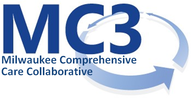Definition
Recovery is a self-directed process of change whereby individuals work to improve their own health and wellness and to live a meaningful life in a community of their choice while striving to achieve their full potential.
Four dimensions that support a life in Recovery
- Health: overcoming or managing one’s disease(s) or symptoms making informed, healthy choices that support physical and emotional well-being;
- Home: having a stable and safe place to live;
- Purpose: pursuing meaningful and responsible daily activities;
- Community: being part of relationships and social networks that provide support, friendship, love, and hope.
Examples of Indicators
- Use of Wellness and Recovery Action Plans or another recovery-oriented plan.
- The recovery oriented plan should take a holistic approach which includes at a minimum the 4 dimensions indicated in the definition.
- Assessment of improving an individual’s quality of life.
- Agencies include recovery-oriented language in their policies and procedures.
- Each agency documents a definition of recovery based on the scope of their services and mission.
Assessments
- Recovery Oriented System Indicators (ROSI): Forty-two item survey developed to assess the recovery orientation of community mental health systems for adults with serious and persistent psychiatric disorders and which covers eight domains: 1. Person-centered decision making and choice; 2. invalidated personhood; 3. Self-care and wellness; 4. Basic life resources; 5. Meaningful activities and roles; 6. Peer advocacy; 7. Staff treatment knowledge; and 8. Access.
- Recovery Assessment Scale (RAS): Developed by consumers in the mid 90s, the RAS is a 41 item scale that assesses consumers’ subjective experience of recovery and assesses five factors, including: 1. Personal confidence and hope; 2. Willingness to ask for help; 3. Goal and success orientation; 4. Reliance on others; and 5. Not being dominated by symptoms.
